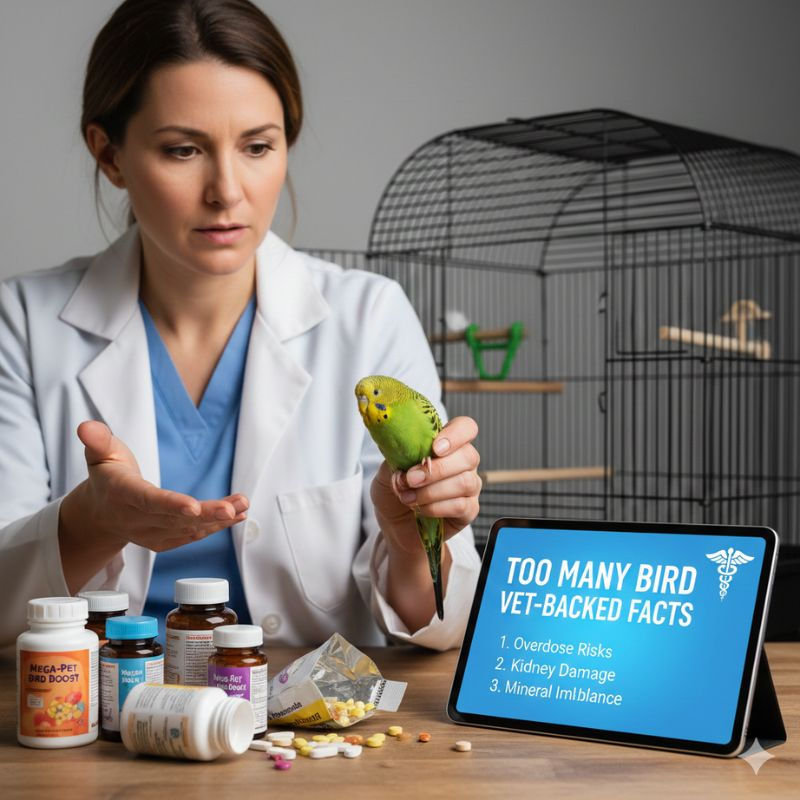The Environmental Benefits of Feeding Birds in Your Backyard
- petperchlove
- Feb 14, 2025
- 4 min read

Introduction
Birdwatching is not only a relaxing hobby, but it also plays a crucial role in supporting local ecosystems. Setting up bird feeders in your backyard can contribute to biodiversity, help bird populations thrive, and enhance the natural beauty of your outdoor space. With the right setup, you can provide essential nourishment to birds while fostering a healthy environment.
But how exactly does feeding birds benefit the environment? And how can you choose the best bird feeders to maximize these benefits? Let’s explore the key environmental advantages of backyard bird feeding.
1. Supports Bird Populations, Especially in Harsh Seasons
One of the most significant environmental benefits of using bird feeders is the support they provide to bird populations, particularly during times when food is scarce.
Winter months: Cold weather and snow make it difficult for birds to find natural food sources. Feeding them high-energy seeds, suet, and mealworms ensures they survive and stay healthy.
Spring and breeding season: Birds require extra nutrients during nesting and raising their young. A well-stocked bird feeder helps parent birds stay strong and feed their chicks.
Migration periods: Many species travel thousands of miles and need reliable food sources during migration. Backyard feeders act as essential refueling stations.
By offering a consistent food supply, you directly contribute to bird conservation, preventing population declines due to habitat loss and climate change.
2. Promotes Biodiversity and a Balanced Ecosystem
A well-maintained bird-friendly backyard encourages biodiversity, which is vital for a balanced ecosystem. Here’s how:
Birds control insect populations: Many bird species, such as chickadees and warblers, feed on insects, reducing the need for chemical pesticides in your garden.
Seed dispersal: Birds that eat fruits and berries help spread plant seeds, promoting natural reforestation and plant diversity.
Pollination: Hummingbirds and certain bird species contribute to pollination, supporting flowers and plant growth.
By installing the best bird feeders and providing various food sources, you create a mini-ecosystem where birds thrive and benefit other species as well.
3. Reduces Human Impact on Bird Habitats
Urbanization, deforestation, and climate change are reducing the availability of natural habitats for birds. Backyard bird feeders help counteract these losses by:
Providing a reliable food source amid habitat destruction.
Offering a safe space for birds away from human disturbances.
Encouraging people to plant native trees and shrubs to complement feeders.
By creating a bird-friendly yard, you help mitigate human-induced habitat loss while fostering a space where birds can safely thrive.
4. Enhances Soil Health and Garden Fertility
Bird feeding indirectly benefits your garden’s health:
Birds contribute to natural composting by breaking down organic matter.
Their droppings act as a natural fertilizer, enriching the soil with nutrients that promote plant growth.
Birds help keep your garden clean by consuming weeds and fallen seeds.
A well-balanced environment, supported by bird feeders, leads to healthier plant life and a more self-sustaining backyard ecosystem.
5. Encourages Awareness and Conservation Efforts
Feeding birds doesn’t just benefit nature; it also fosters awareness and appreciation for wildlife conservation.
It encourages families and children to learn about bird species, migration, and the importance of conservation.
Birdwatching becomes an engaging activity that promotes mindfulness and a deeper connection with nature.
Homeowners are more likely to support conservation initiatives when they see firsthand how birds interact with their environment.
Investing in the best bird feeders helps create a ripple effect—more people get involved in protecting birds, supporting wildlife organizations, and advocating for environmental preservation.
How to Choose the Best Bird Feeders for Your Backyard
To maximize these environmental benefits, selecting the best bird feeders is essential. Here’s what to consider:
1. Choose Feeder Types Based on Bird Species
Tube feeders – Ideal for small birds like finches and chickadees.
Hopper feeders – Great for cardinals, jays, and larger birds.
Suet feeders – Best for woodpeckers and nuthatches.
Nectar feeders – Perfect for hummingbirds and orioles.
2. Opt for Eco-Friendly and Durable Materials
Use feeders made from recycled plastic, metal, or sustainable wood.
Avoid plastic feeders that degrade quickly and contribute to waste.
3. Ensure Feeders are Easy to Clean
Bacteria and mold can harm birds.
Choose feeders with removable parts for easy maintenance.
4. Provide the Right Food for Birds
Black oil sunflower seeds are a favorite for many birds.
Suet cakes offer high-energy nutrition, especially in winter.
Nyjer seeds attract finches and other small songbirds.
By investing in the best bird feeders, you can create an inviting, safe, and nourishing environment for local birds.
Final Thoughts
Using bird feeders in your backyard isn’t just a hobby—it’s a meaningful way to support the environment. From preserving bird populations to fostering biodiversity, reducing human impact, and improving garden health, feeding birds has far-reaching environmental benefits.
By choosing the best bird feeders and maintaining them properly, you contribute to a healthier ecosystem while enjoying the beauty and joy of birdwatching.
Frequently Asked Questions (FAQs)
Q1: Will feeding birds make them dependent on bird feeders?
No, birds instinctively search for food from various sources. Feeders act as a supplemental food source, especially during food shortages.
Q2: How often should I clean my bird feeder?
At least once every two weeks to prevent mold, bacteria, and diseases from spreading among birds.
Q3: What’s the best location to place a bird feeder?
Place it:
Away from predators (like cats).
Near shrubs or trees for cover.
In an open area to prevent squirrel access.
Q4: Do bird feeders attract pests?
They can if not maintained properly. Use squirrel-proof feeders and clean up spilled seeds regularly.
Q5: Should I feed birds all year round?
Yes! Each season presents different challenges for birds, and a consistent food supply ensures their survival and well-being.



Comments